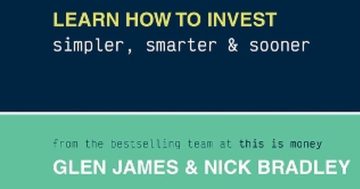Paul Glossop* says that in the rule book of real estate, property really is just a game of finance, so here’s how you can crack a tough market.
 Before you even open your first book about real estate or begin a Google search of property forums, the very first set of analysis all investors must undertake is to determine their ability to borrow funds and service loans.
Before you even open your first book about real estate or begin a Google search of property forums, the very first set of analysis all investors must undertake is to determine their ability to borrow funds and service loans.
It makes no sense to disappear down the rabbit hole of research if you can’t gather the dollars.
So, your financial capacity is the determining factor.
First and foremost, run your household budget and do your spreadsheet of assets and liabilities.
Preferably tackle these exercises under the watchful guidance of a mortgage broker who has experience in the investment field.
By setting out these salient figures, an investor can work out if they can afford a loan and, if so, how much they are able to invest.
It makes no sense to be all over the property portals trying to find excellent options in Bondi Beach, Sydney, if your budget only extends to Coopers Plains, Brisbane.
Your time is valuable.
I’ve seen potential investors become exhausted by the options because they lose themselves in information about locations, price points and market sectors that are, frankly, well beyond their financial capability.
Save yourself the stress and do your finances first.
Prepare to succeed
Once you’ve gone through the exhaustive exercise of finance, you have a distinct advantage over others when it comes to jumping on unexpected opportunities.
Getting finance approved can be a struggle, but once you’ve done the hard yards you’ll have cleared a hurdle that allows you to take the driver’s seat when securing a property.
One of the best aspects of using a buyers’ agent is our ability to secure off-market deals for clients.
Many times, these come across our desk because of the relationships we’ve formed with agents in our areas of interest.
They will have a holding where the owner is keen to sell and will take a discount to avoid wasting time.
When a deal is presented before it hits the market, and it meets all the criteria of a great option, you want to move fast to lock it down.
Being finance-ready gives you, the buyer, that comfort.
You can go in with a cash offer knowing the bank has already approved you for a loan.
It’s one of the best ways to profit from property, because that discount means you have a little extra equity in the holding right from the get-go.
Two top tips
When it comes to finance, there are two key mistakes many investors make when they aren’t operating under the guidance of experienced advisers.
The first is they forget to factor in life’s big financial events.
If you go all-guns-blazing into a 30-year strategy based purely on your current position, there can be grief to come.
You need to make plans so as to afford and enjoy life outside of the investment loan.
If the kids are due to head off to private school soon, this must be factored into your figures.
If you and your spouse are thinking about starting a business in the next two years — congrats, but your family’s cash flow could be running dry for a stretch.
Life keeps moving — make sure you mitigate the pain by doing a proper job of allowing for future events.
The second thing is to expect the unexpected.
Interest rates can change, rental demand can drop and even the best of us can be out of work.
While these unfortunate events might be beyond your control, there is a way to soften the blow via your finance.
Buffers should be an essential element of your financial process.
You must factor in tolerances — particularly with your cash flow — so that, should the worst happen, you’ll be ready to address the shortfalls.
I believe a smart investor will ensure that they can service at least six months of essential operating costs including household expenses and loans.
Kept in an offset account against your principal place of residence, your buffer will provide the benefit of a reduced interest, but will still be liquid funds on hand to keep you financially afloat if needed.
Budget smudget
While I’m all for being across the numbers from a finance perspective, I don’t believe in having your lifestyle hamstrung by a strict home budget once you’ve got your processes up and running.
In my opinion, most well-informed households that set up an initial financial plan grow accustomed to their essential spending and, in time, find that they don’t need to strictly account for every dollar just to stay ahead.
Get smart with your figures and you’ll eventually and automatically be able to manage your wallet without having to check the spreadsheet each day.
Seek professional help
Tackling finance early means you understand where the line in the sand sits when it comes to purchase price and rental return on your investment property.
With these important numbers in your grasp you can begin to research investment options that fall within your financial capabilities.
I believe the best move you can make is to surround yourself with trustworthy, experienced advisers.
These folks are essential members of the dream team that’ll reduce your risks and boost your outcome.
* Paul Glossop is founder of Pure Property Investment.
This article first appeared at www.nestegg.com.au.











